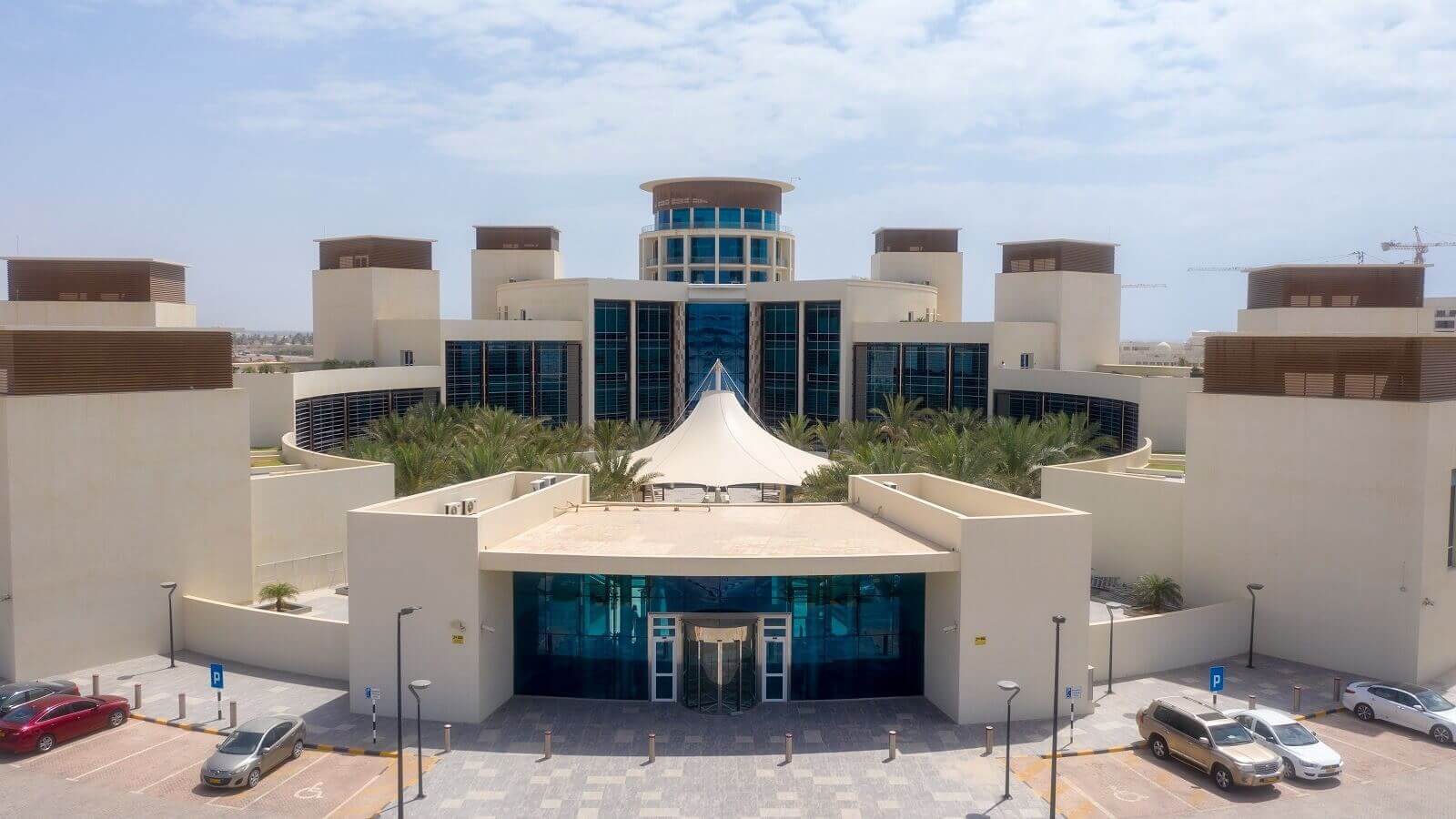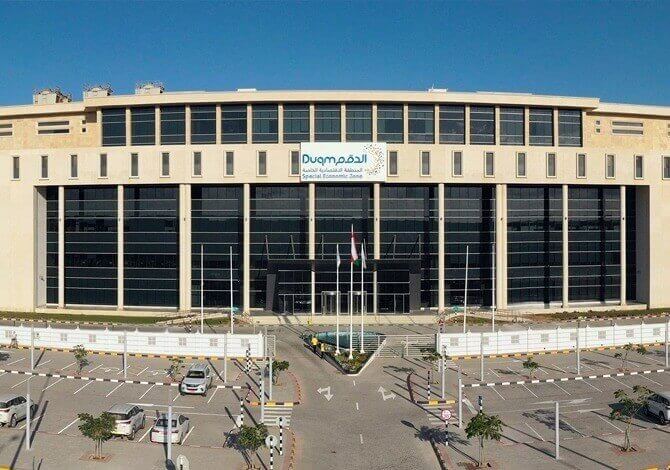Introduction
Oman offers a robust and welcoming environment for foreign investors, making it an ideal location to start and grow a business in the GCC region. With its growing economy, strategic location, and business-friendly regulatory environment, Oman is rapidly emerging as one of the top destinations for international companies looking to establish a presence in the Middle East. Whether you are looking to set up an limited liability company, establish a branch office, or explore the various free zones in Oman, understanding the process of company formation in Oman is crucial for success.

Sectors
Agriculture
Oman is strengthening food security by advancing modern farming, aquaculture, and fisheries, creating jobs and investment opportunities. The agriculture sector also drives agribusiness and food processing through innovative, sustainable practices.
Tourism & Hospitality
Oman’s scenic beauty, rich culture, and historical sites make it a fast-growing tourism hub, with many opportunities for foreign investment in hospitality, travel agencies, and leisure services.
Healthcare & Pharmaceuticals
With an increasing focus on healthcare, there are many opportunities for foreign investors in medical services, pharmaceuticals, and wellness businesses.
Manufacturing & Industrial
Oman is diversifying its economy with large-scale investments in manufacturing and industrial activities, particularly in the Sultanate’s economic free zones.
Logistics & Transportation
Oman’s strategic location, world-class ports, and connectivity make it a strong base for logistics and transportation companies.
Oil & Gas
As a major global energy supplier, Oman continues to be a hotspot for oil and gas exploration, production, and services.
Information Technology
The growing demand for digital transformation in Oman opens avenues for foreign businesses in IT services, software development, and technology solutions.
Stakeholders
For foreign investors planning to set up a business in Oman, understanding the local business landscape and key stakeholders is vital.

Ministry of Commerce, Industry, and Investment Promotion

Oman Chamber of Commerce and Industry (OCCI)
The OCCI is an essential partner for businesses as it facilitates trade and industry relations and advocates for business interests.

Oman Investment Authority (OIA)

Local Partners
Major Strategies & Important Policies
Oman’s economic and business policies are shaped by its National Vision 2040, which aims to diversify the economy, reduce dependence on oil revenues, and promote sustainable development. This vision focuses on:

Encouraging Foreign Investment
The government is actively working to attract foreign investors by creating a conducive environment for business setup and growth.

Economic Diversification
Oman is focusing on sectors like manufacturing, tourism, logistics, and technology to ensure long-term economic stability and growth.

Infrastructure Development
Major infrastructure projects, including port facilities, airports, and free zones, are designed to support business operations and enhance Oman's connectivity.
Oman’s sector-related strategies and policies are aligned with the National Vision 2040, focusing on economic diversification, sustainability, and investment attraction.

Energy Sector
Oman is diversifying its energy mix with a focus on renewable energy and modernizing the oil and gas industry through investment incentives and technology integration.

Tourism & Hospitality
Oman aims to position itself as a key destination for cultural, eco, and adventure tourism. Policies support full foreign ownership in tourism ventures, with a strong emphasis on sustainability.

Manufacturing & Industry
The Industrial Strategy promotes value-added industries such as food processing, petrochemicals, and pharmaceuticals, with investment support in free zones and industrial parks.

Logistics & Transport
Oman seeks to become a logistics hub with investments in ports, airports, and infrastructure. Public-private partnerships are encouraged to enhance transportation networks.

Financial Services & FinTech
The country is boosting its financial services and FinTech sectors with reforms in banking, insurance, capital markets, and digital finance. Agriculture & Fisheries: Focused on food security, Oman promotes investment in modern agriculture, aquaculture, and sustainable fisheries.

- These sector-specific strategies, supported by government incentives and regulatory reforms, create a favorable environment for foreign investment, making Oman an attractive destination for business formation and growth.
- Oman has put in place several policies to attract foreign investment and facilitate ease of doing business in the country. These policies are part of a broader effort to implement the objectives of Vision 2040 and create an investment-friendly environment.

Foreign Investment Law
The Sultanate of Oman’s foreign investment laws have been revised to allow 100% foreign ownership in many business sectors. This makes Oman one of the more investor-friendly countries in the region. Additionally, the government has introduced various investment incentives, including tax holidays and customs duty exemptions, for foreign investors in select sectors like manufacturing, infrastructure, and technology.

Ease of Doing Business
Oman ranks highly in terms of ease of doing business. The government has simplified administrative procedures for business registration, obtaining permits, and complying with regulations. This has significantly reduced the time and cost required to start a business in Oman, making it more attractive to investors. The single-window service system for business licensing has further enhanced the efficiency of government services.

Investment Promotion
The Oman Investment Authority (OIA) and other government bodies provide valuable support for foreign investors, including:
- Financial incentives such as tax exemptions and low-interest loans.
- Support for foreign investors in sectors such as energy, logistics, and tourism.
- Guidance on regulatory requirements and navigating local business laws. These efforts are designed to ease the entry of international businesses and establish.
Benefits of a Business Setup in Oman
- Full Foreign Ownership: Oman now allows foreign investors to own 100% of their businesses in most sectors, including manufacturing and service-based industries.
- Strategic Location: Oman's location at the crossroads of Europe, Asia, and Africa provides businesses with easy access to key markets in the region and beyond.
- Attractive Taxation System: Oman offers competitive corporate tax rates and has signed double taxation treaties with several countries, providing tax relief to foreign investors.
- Supportive Government: The Omani government offers a range of incentives for foreign investors, including tax exemptions, land grants, and subsidies in key economic sectors.
- Growing Economy: With its ongoing diversification, Oman provides a stable and growing economy, driven by sectors like manufacturing, tourism, and logistics.
- Ease of Doing Business: Oman consistently ranks as one of the top countries in the region for ease of doing business, with streamlined processes for business registration, licensing, and approvals.

Steps to Establish a Business in Oman
Setting up a business in Oman involves three key stages:
Pre-Licensing
Assessing possibilities and evaluating options for business licensing in Oman.
Licensing
Applying for the relevant licenses, permits and approvals
Post-Licensing
Completing all steps to commence operations, including visas, office setup, insurance, and banking

Licensing Platforms in Oman
Ministry of Commerce, Industry, and Investment Promotion (MOCIIP)
The Ministry of Commerce, Industry, and Investment Promotion (MOCIIP) is the primary government body responsible for facilitating business and investment activities in Oman. It plays a key role in promoting the country as an attractive investment destination through a wide range of services and initiatives aimed at streamlining business setup processes. The MOCIIP oversees business registration, licensing, and regulatory compliance for both domestic and foreign companies. It is also involved in foreign direct investment (FDI) facilitation, offering various incentives to encourage foreign participation in Oman’s economic development.
Through MOCIIP, investors can obtain information about market entry strategies, obtain the necessary permits and licenses for business activities, and navigate the regulatory landscape. The Ministry’s focus is on driving economic diversification and fostering a business-friendly environment in line with Oman’s Vision 2040.


Sohar Free Zone
Located in the north of Oman, Sohar Free Zone, inaugrated in 2010 is one of the largest and most strategically positioned free zones in the country. It offers a favorable investment environment for companies looking to establish operations in Oman, with a focus on industrial and manufacturing activities. The zone benefits from its strategic location near key global trade routes and major cities, with modern highways connecting it to Muscat, Dubai, and Abu Dhabi, along with easy access to Muscat Airport.
Sohar Free Zone offers full foreign ownership, tax exemptions, and customs duty relief for businesses. Companies operating here benefit from close proximity to major international shipping routes and access to Oman’s oil and gas and petrochemical industries. This makes Sohar Free Zone a prime destination for businesses in plastics, metals, minerals, food, petrochemicals and service sectors.
Salalah Free Zone
The Salalah Free Zone, located in the south of Oman, offers businesses a prime location for operations within close proximity to key international shipping routes and markets in the Middle East, Africa, and Asia. The zone specializes in sectors such as chemical and material processing, manufacturing and assembly, logistics and distribution sectors.
With its strategic location near the Port of Salalah, the free zone offers competitive advantages including customs duty exemptions, full foreign ownership, and tax-free operations. Salalah Free Zone is a key location for businesses looking to take advantage of Oman’s trade agreements with various international partners, making it a highly favorable environment for companies looking to expand in the region.


Al Mazunah Free Zone
Situated in the southernmost region of Oman, Al Mazunah Free Zone offers a unique location for businesses looking to capitalize on the proximity to the Republic of Yemen. Its strategic position allows companies to tap into regional trade markets across the Gulf Cooperation Council (GCC).
Al Mazunah Free Zone provides businesses with access to a range of incentives, including full foreign ownership, tax exemptions, and import/export privileges. The zone caters to a diverse set of industries, including trade, manufacturing, and distribution, and it serves as a hub for businesses looking to access both GCC and East African markets.
Al Duqm Special Economic Zone
The Al Duqm Special Economic Zone (SEZ) is one of Oman’s most promising development projects, focusing on creating a diversified industrial base in the region. As a key pillar of Oman’s economic diversification strategy, the SEZ spans 2,000 square kilometers in the Al Wusta Governorate, making it the largest in the Middle East and North Africa.
Al Duqm SEZ offers attractive incentives for investors, including tax exemptions, land lease options, and full foreign ownership. The zone focuses on industries, such as refineries, oil storage, transport, fish and food, logistics, warehousing, minerals, and tourism sectors . With its extensive resources and investor-friendly policies, Al Duqm SEZ is set to play a pivotal role in Oman’s economic growth, fostering opportunities in both traditional and high-tech industries.
MCQ attracts media-related businesses, focusing on sectors such as digital media, film and television production, news organizations, sports broadcasting, advertising, eSports, gaming, and publishing. It aims to promote Qatar’s position as a leading place for media technology and innovation.
MCQ provides significant benefits, including 20-year corporate tax exemptions, low-cost office spaces with state-of-the-art technology, and comprehensive administrative support. Its advanced infrastructure and supportive regulatory framework make MCQ an ideal destination for companies with media related activities looking to expand and succeed in the region.


Knowledge Oasis Muscat Special Economic Zone
The Knowledge Oasis Muscat (KOM) is Oman’s premier technology and innovation hub, situated in the capital, Muscat. KOM aims to foster a thriving knowledge-based economy by attracting businesses involved in IT, telecommunications, R&D, and high-tech sectors. It serves as an incubator for both start-ups and multinational corporations focused on cutting-edge technology and research.
KOM offers a range of incentives to businesses, including full foreign ownership, tax exemptions, and a highly skilled labor pool. The zone is home to various institutions, including academic institutions, research organizations, and technology companies, providing a conducive environment for collaborative innovation and technological advancement. It is particularly appealing for businesses looking to benefit from Oman’s push towards digital transformation and technology-driven industries.
These free zones and regulatory bodies in Oman create a robust and diverse landscape for foreign investors to establish, grow, and expand businesses across a variety of sectors, from logistics and manufacturing to technology and finance.
Conclusion
Oman provides a business-friendly environment with numerous opportunities for foreign investors. With its diverse sectors, strategic location, robust regulatory framework, and growing economy, Oman is a prime destination for foreign investment in the GCC region. Whether you’re looking to start a business in Oman, register a company, or explore the Oman free zones, our expertise and local network can guide you through every stage of the process. Let us help you turn your Oman business aspirations into a reality.